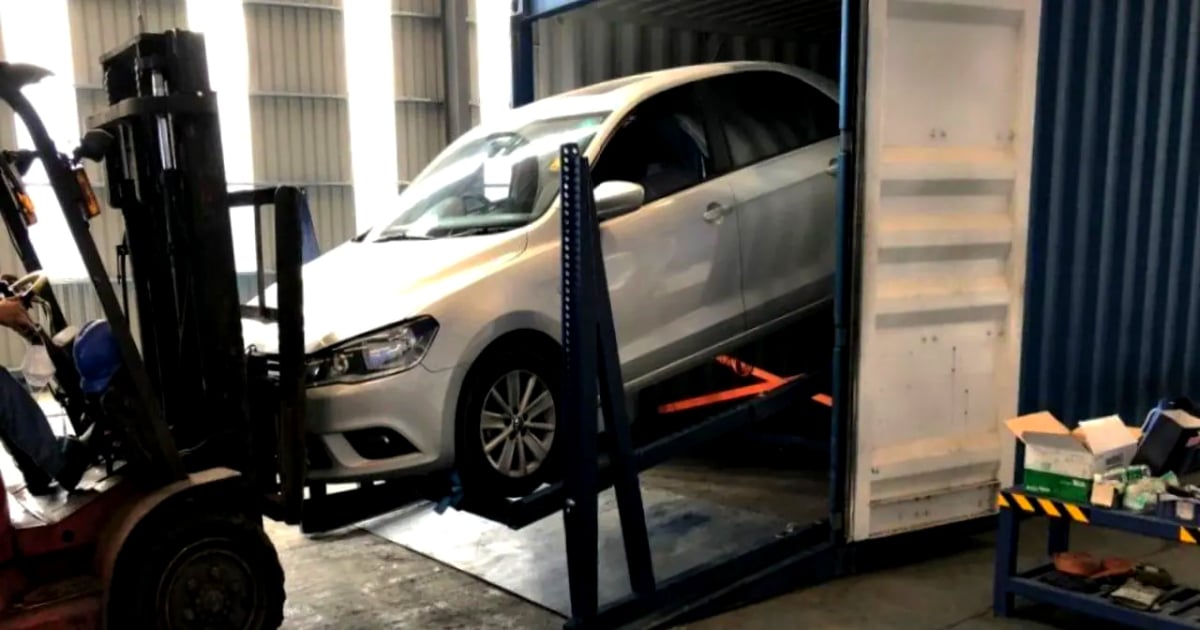Recent actions by the Cuban regime regarding vehicle imports have raised alarms among car export agencies in Miami. The new regulations, effective as of January 1st, threaten to eliminate these businesses from the market. Many of these agencies have been operating with licenses to ship cars to Cuba since 2022, as reported by Martí Noticias.
The updated rule mandates that export agencies must present an official authorization from the vehicle manufacturer, ensuring technical support and the availability of spare parts. Published in the Official Gazette, this measure is seen as an effort to complicate imports from the United States.
A representative from a Miami agency, choosing to remain anonymous, described the regulation as a "legal formula to entangle car imports." According to this source, major brands like Toyota, Chevrolet, or Tesla do not issue such letters for shipments to Cuba, effectively halting their operations.
Effect on Agencies and Private Enterprises
Currently, these agencies have halted vehicle shipments for individuals while they assess the new regulations. Despite this, they continue sending cars to private businesses (Mipymes), which still enjoy some flexibility in the procedures. However, several agencies have chosen not to advertise these services on social media, creating uncertainty among their clientele.
Cuban Minister of Transport, Eduardo Rodríguez Dávila, recently released a list of the nine companies authorized to sell vehicles on the island. Among these are state and mixed entities like CIMEX and Servicios Automotores S.A. (SASA), many of which are part of the military conglomerate GAESA. These companies have historically monopolized the car market in Cuba, primarily importing vehicles for taxis, ambulances, and patrols.
Criticism and Economic Impact
Economist Emilio Morales pointed out that these measures are part of a strategy to bolster GAESA's financial control amid the country's economic crisis. Morales argues that the regime aims to funnel all possible revenues into state coffers, limiting other economic players' participation. "We are witnessing an intensification of control at the worst moment of a multisystemic crisis," he told the media outlet.
During the first half of 2024, Cuba imported vehicles from the United States valued at over 30 million dollars, yielding significant revenue for the government. However, these new restrictions could drastically reduce these figures, impacting both Cuban entrepreneurs and the income flow from Miami.
Although authorities promised in 2023 to ease vehicle imports for individuals, the current situation has sparked dissatisfaction among the population and business owners. This scenario could exacerbate the already critical economic condition of the country, deepening social unrest.
Frequently Asked Questions about Cuba's Vehicle Import Regulations
What are the new vehicle import regulations in Cuba?
The new regulations require export agencies to provide an official authorization from the vehicle manufacturer that ensures technical support and spare parts availability, making imports from the U.S. more difficult.
How do these regulations affect Miami-based car export agencies?
These regulations could exclude Miami-based agencies from the market as major car brands typically do not issue the required authorization letters for shipments to Cuba.
Who is authorized to sell vehicles in Cuba under the new regulations?
The Cuban government has authorized nine entities, including state and mixed enterprises like CIMEX and SASA, many of which are linked to the military conglomerate GAESA.
